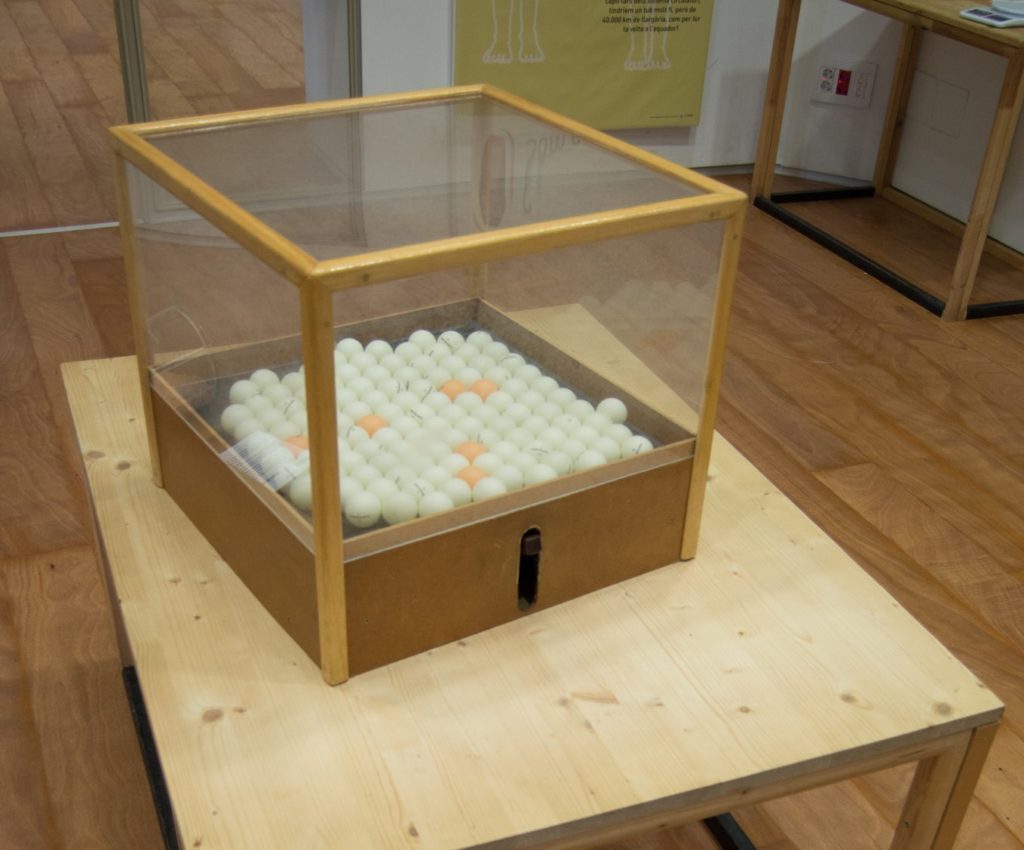Naturally we expect chance to cause regular ordering.
Check how it isn't: tap the lever to make balls jump as many times as you want.
Can you distribute them evenly?
You will see how, almost always, there are areas where colored balls accumulate and other large areas where there are none.
This is a result that we are not too aware of. Let's hope that chance will always spread the events evenly.
If there is any accumulation of facts whether in space or time, we immediately seek some explanation.
Surely this way of working of our thinking has allowed us to survive as a species, discover physical laws and in general is a driver of scientific advances.
But at the same time we find it difficult to accept that, for example, the accumulation of cases of diseases in a neighborhood or the repetition of adverse sports results can be explained only by the non-regular nature of chance.
- Hotel Area: Sala Lluís Santaló
- Minimum age: from 10 years old.
- Required time: 5 minutes.
- Number of participants: One or more people
- Keywords: Chance, coincidences
- Taxonomy: Probability and statistics

